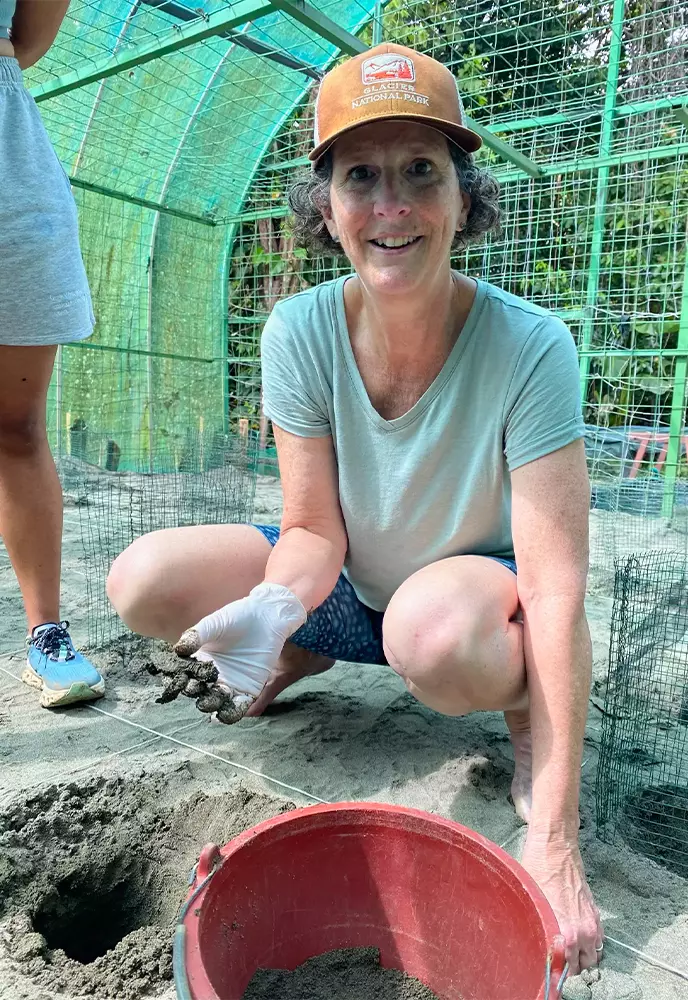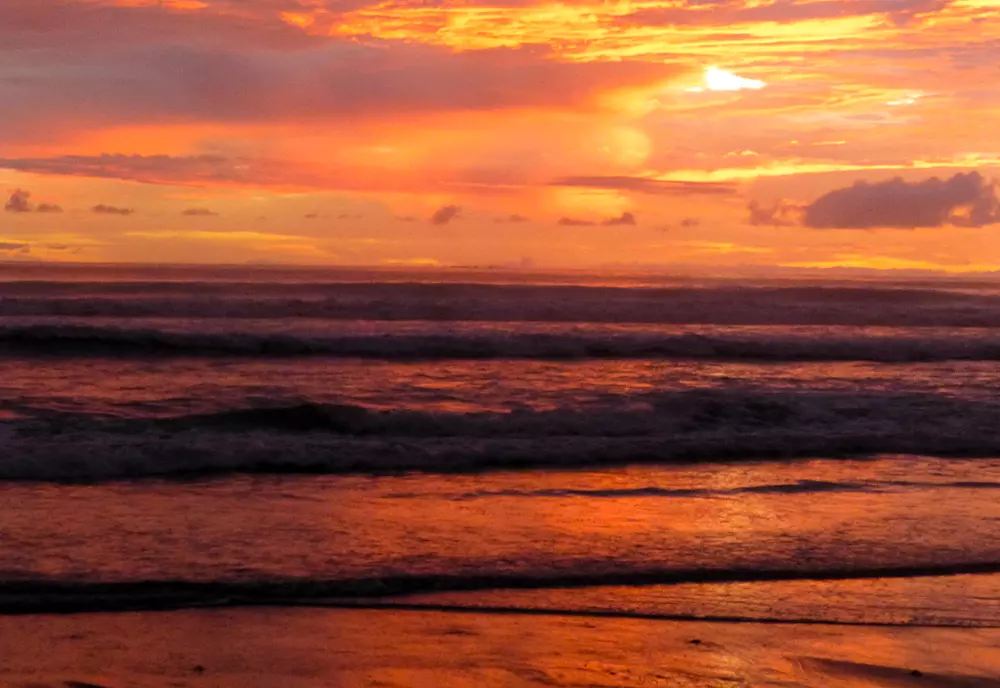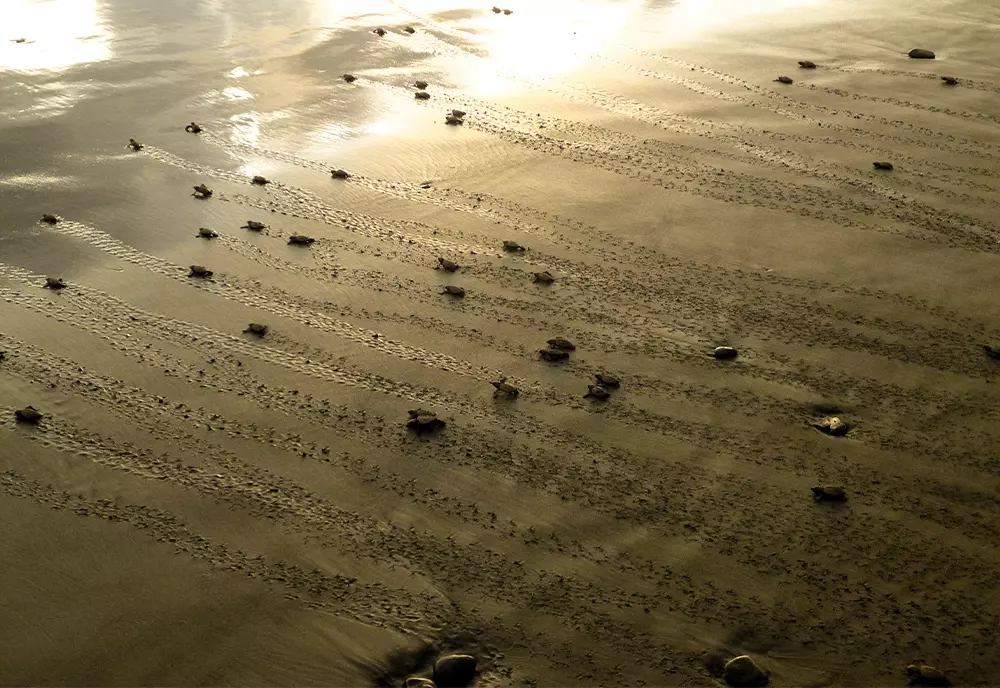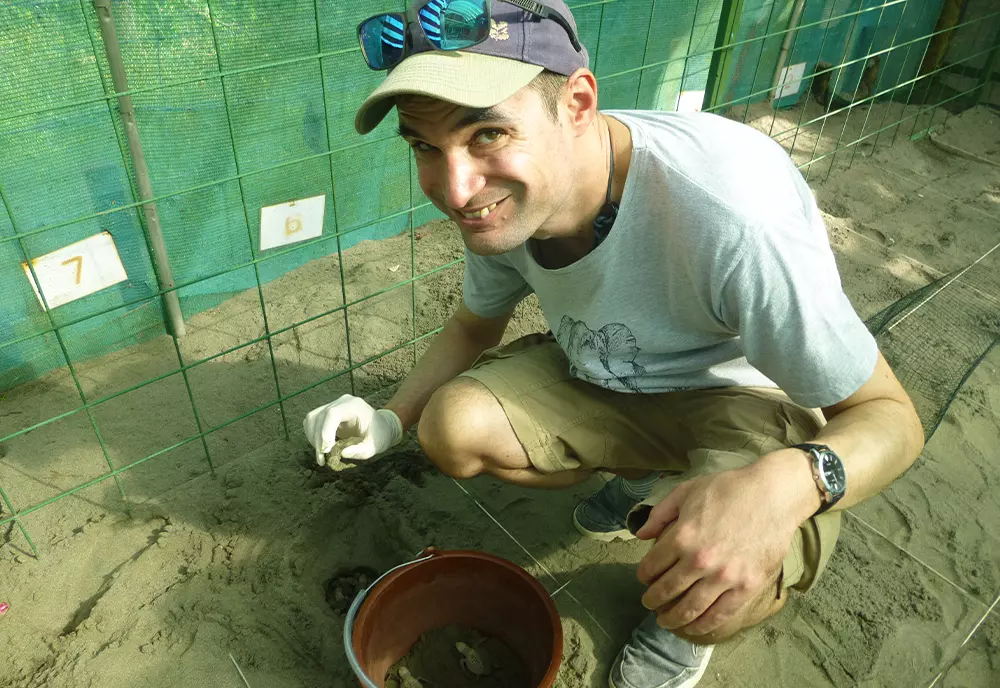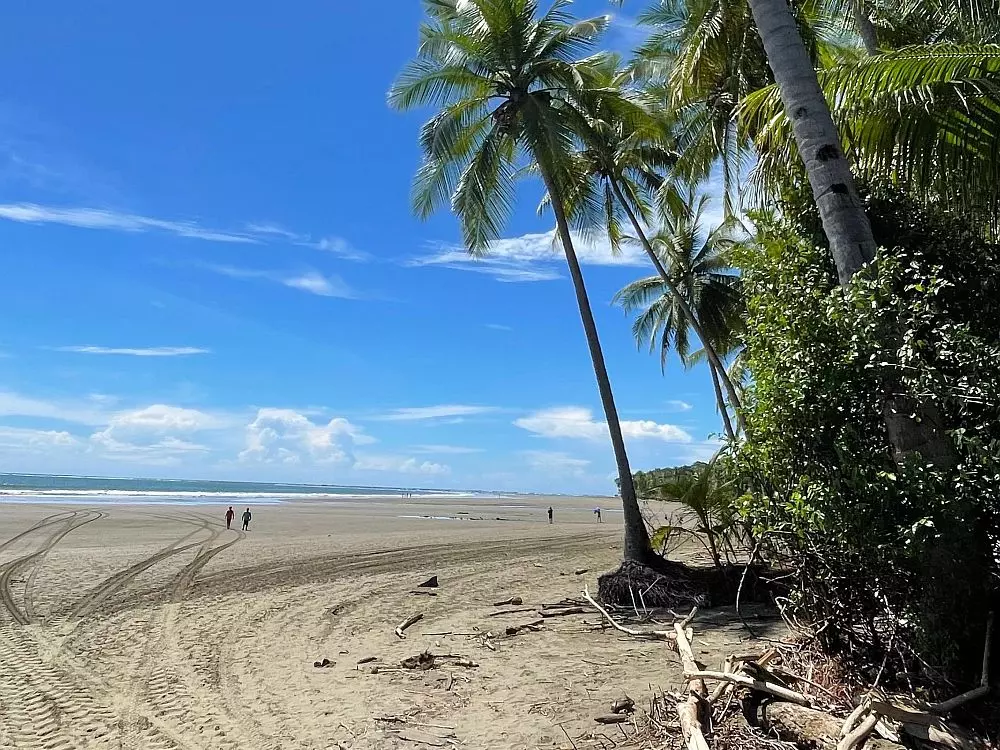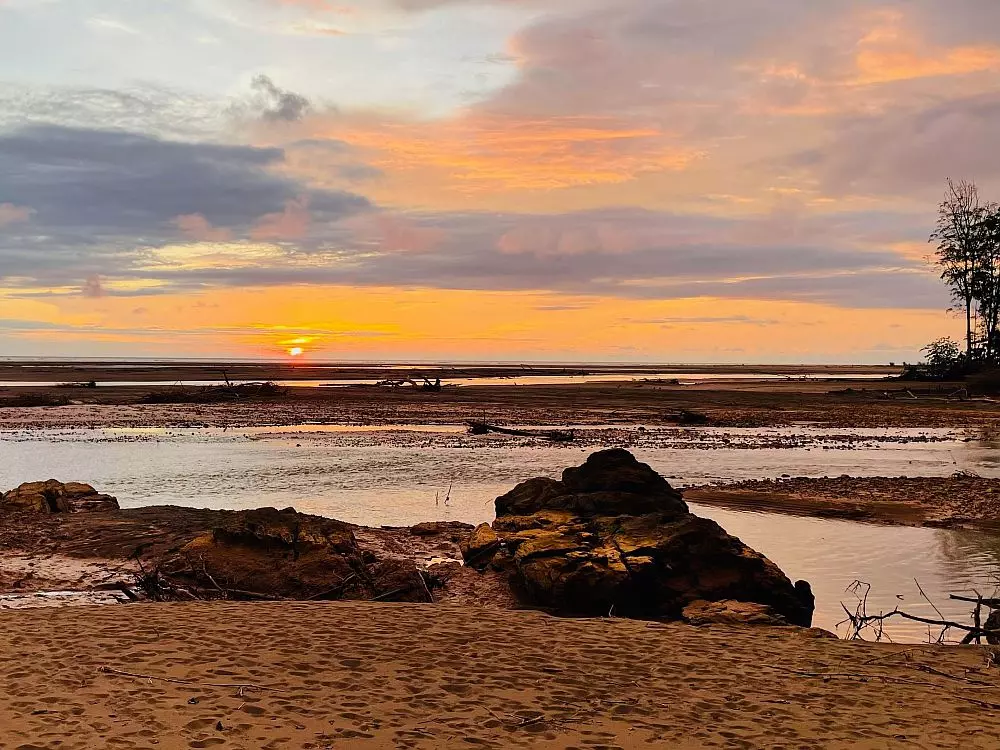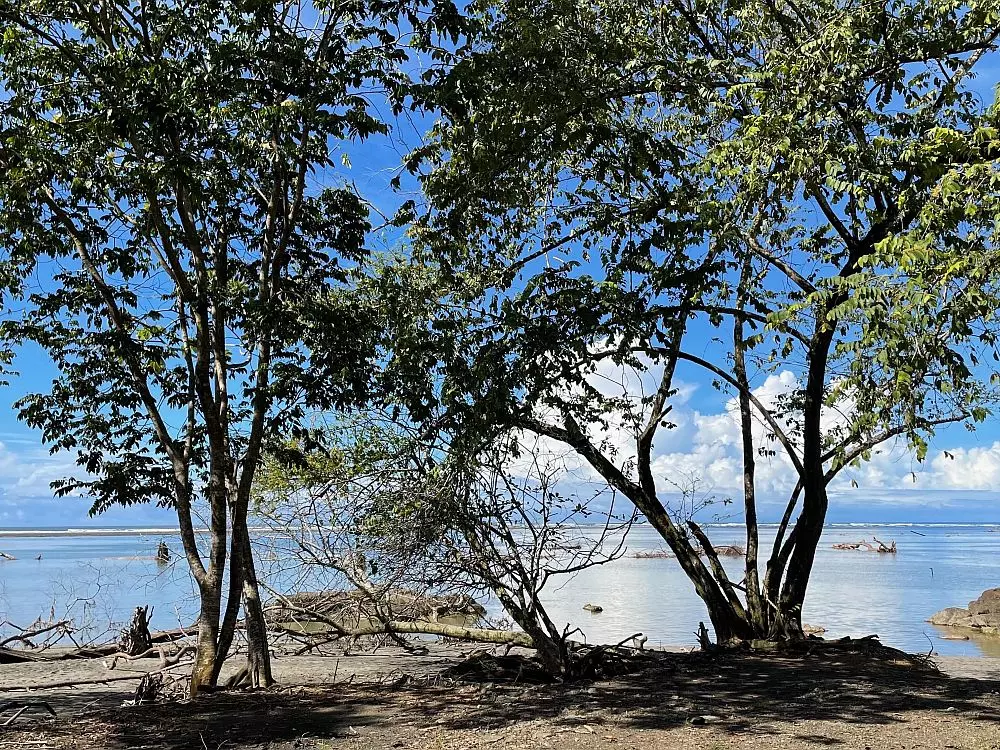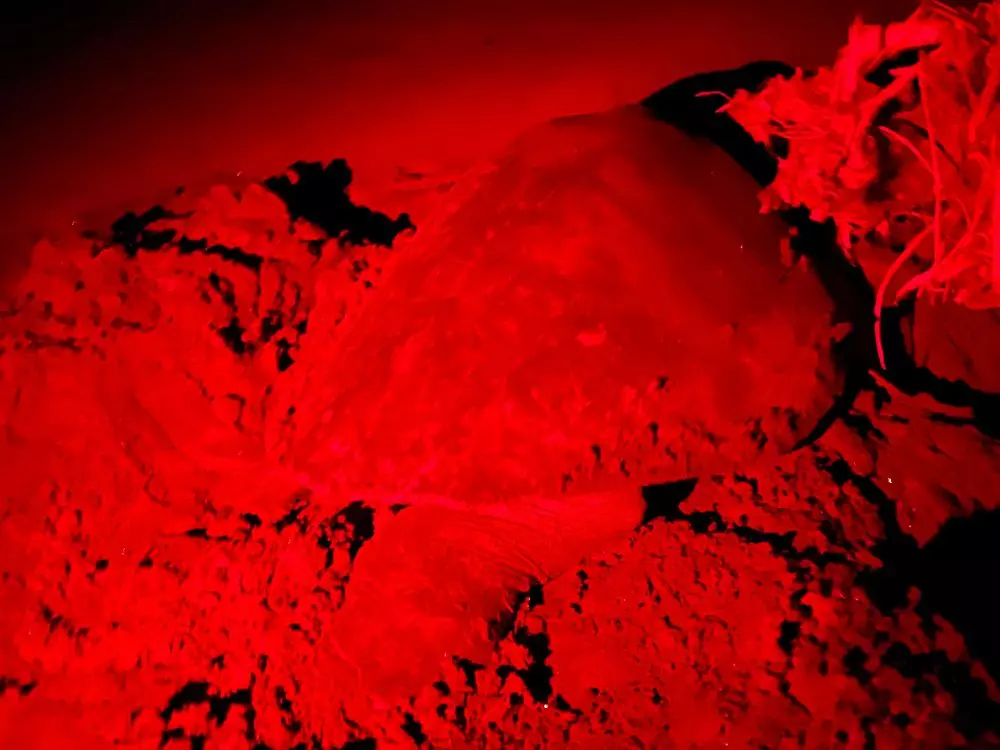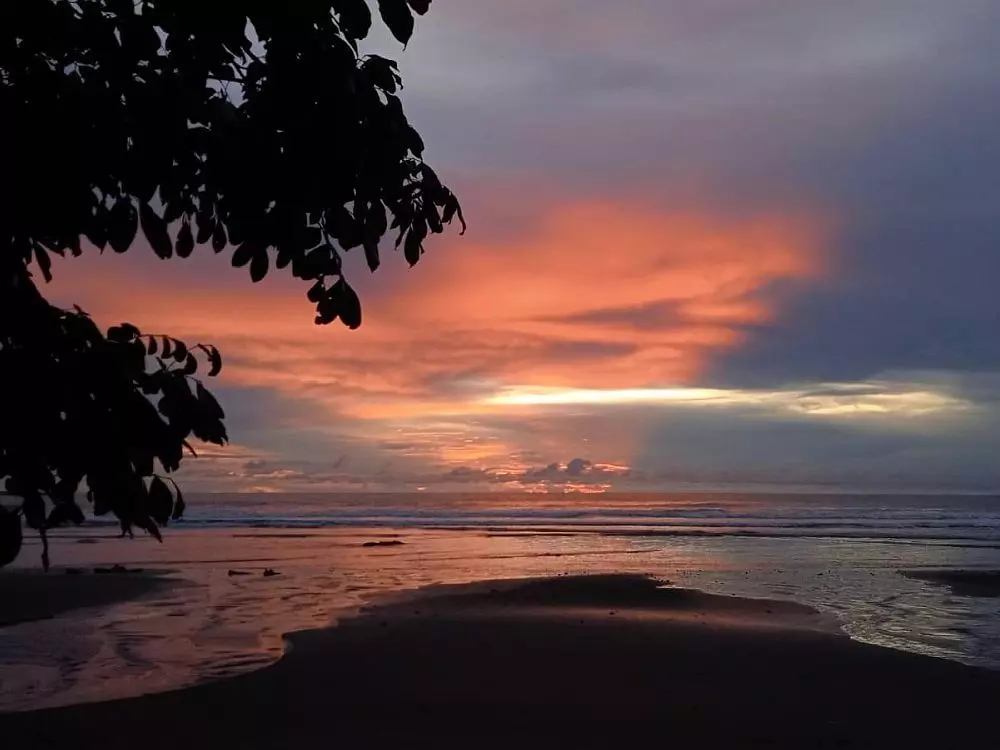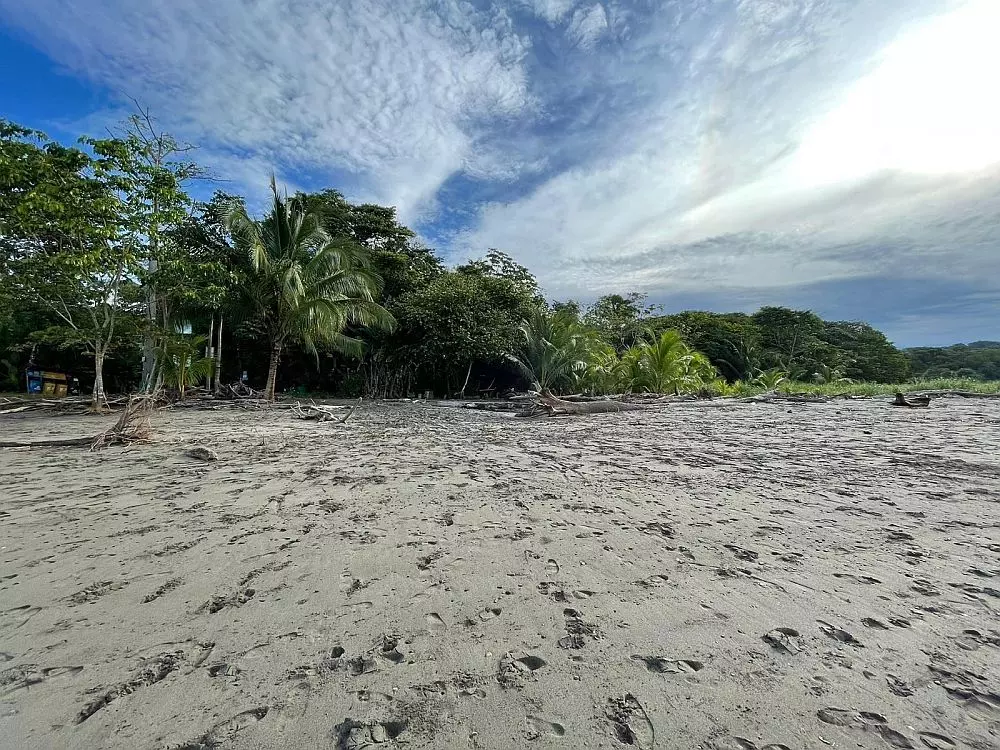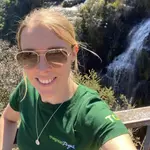

Costa Rica Turtle Conservation Experience
Help protect the endangered sea turtles, as well as other vulnerable wildlife species in coastal Costa Rica.
Speak To A Travel Expert
Activities
Your time spent on the project is vital for the protection of Costa Rica's wildlife, and some of the ways in which will you assist are outlined below. Activities can vary, but may include:
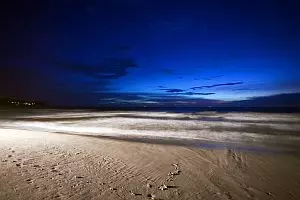
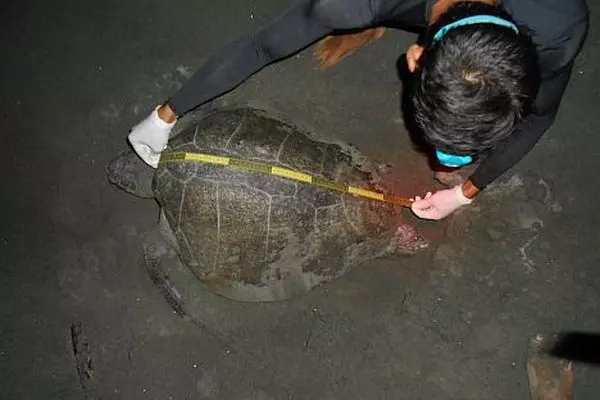
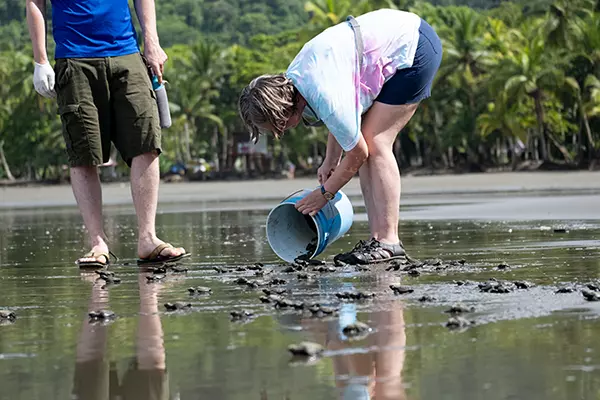
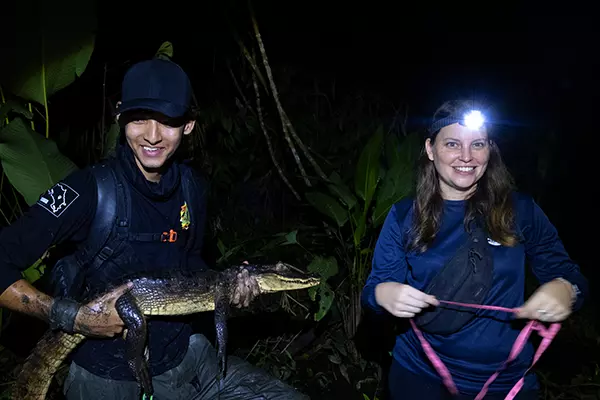
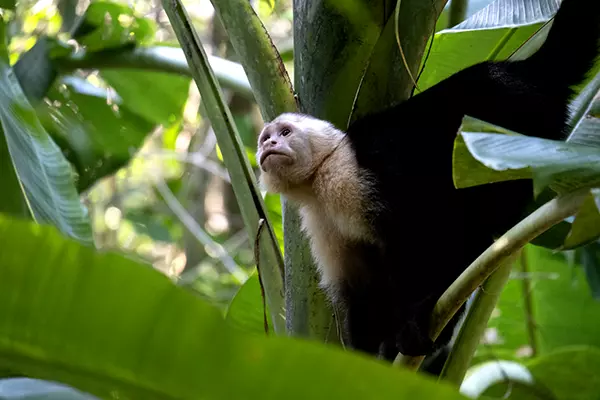
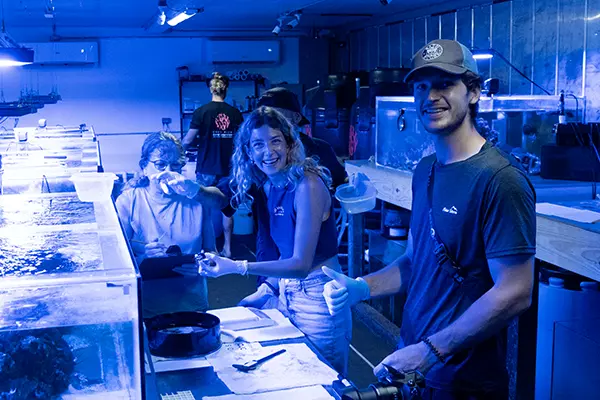
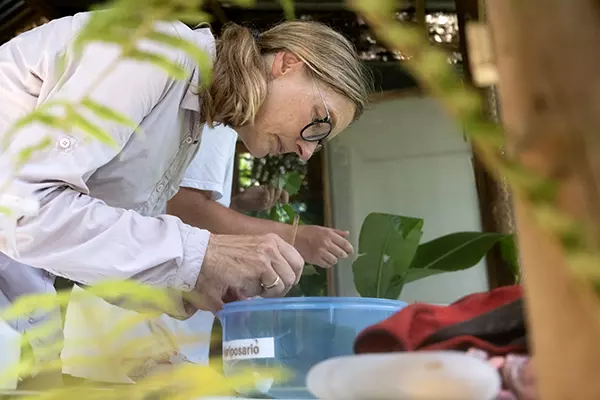
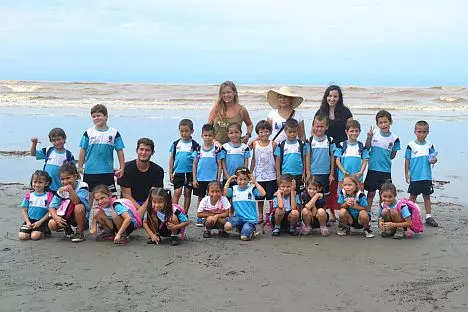
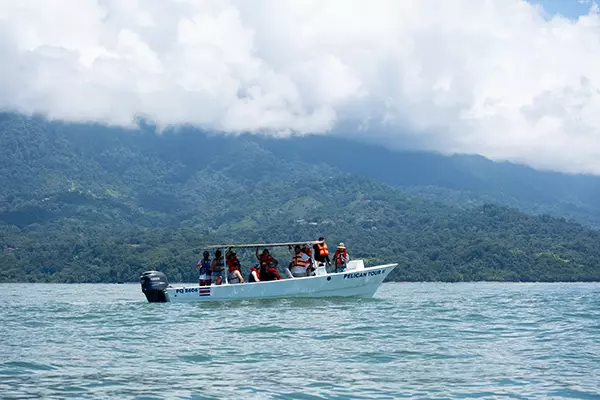
Itinerary
The following is an example itinerary for a 1-week stay, however, itineraries are subject to change depending on the needs of the project when you visit.
Durations & Prices
Accommodation
Accommodation
While on the project, you will stay in the volunteer centre which can accommodate up to 15 volunteers at any one time. You will stay in a private room, complete with a single bed, storage for your belongings and screened windows to keep any bugs at bay. The bathroom facilities are shared but split by gender and there are western toilets and warm showers in each.
There are also two rooms available for couples or small families, one with a queen-size bed, and one with a queen-size bed as well as a bunk bed. Should you wish to book either of these, please contact us to check availability.
Meals & Beverages
All meals are included in the cost of the project. From Monday to Friday you will prepare your own breakfast and dinner, while lunch will be made for you by a member of the team. On the weekends you will need to prepare your own meals. The food will give you a taste of the local cuisine with elements of what you are used to back home, with dishes including salads, chicken, beef, pasta, cereals, sandwiches, and fresh fruit and vegetables! If you have any dietary requirements, please let us know in advance and suitable items will be bought for you.
Project Details
When Is The Best Time To Volunteer?
This project only runs from August to December each year as this is turtle season. Turtles start nesting at the beginning of August, with the eggs taking seven weeks to hatch. From then, hatching season begins around mid/late September, with the peak hatching season typically falling in October. December is usually the last time you are able to see turtles.
If you are looking to travel between January and May, you may want to take a look at The Great Turtle Project in Sri Lanka.
Getting There
You will need to arrive into San José International Airport (SJO) before 10am on your project start date. You will be met at the airport and transferred by car to the project site.
If you are unable to book a flight that arrives by 10am on your start date, we recommend arriving the day before and spending the night at a hotel close to the airport. You can then be met at your hotel the following morning and be transferred to the project site. A popular hotel choice is the Holiday Inn Express San José as it offers 24-hour transfers between the hotel and the airport. Please note that while your transfers are included in the price of the project, there will be an additional charge if you stay in the centre of San José/a hotel further away from the airport.
On your final day, your return transfer will arrive at San José Airport at 11am at the earliest, so please ensure your departure flight is booked for no earlier than 1pm.
Visa Requirements
Most nationalities, including British and American citizens, do not need a visa to enter Costa Rica and will be granted entry for up to 90 days on arrival. You will, however, need to provide evidence of onward travel plans such as a flight ticket or bus ticket exiting the country. As entry requirements can change, we recommend checking with your local embassy regarding visa requirements prior to your time of travel.
Fitness & Skills
During the project, you will take part in a number of long walks through the forest or across tricky terrain; therefore, a good level of fitness is recommended. Please be aware that the forest walks can be particularly treacherous, as the rains can make the ground and metal staircases rather slippery – be sure to bring along a pair of boots/shoes with good grip! No particular skills are required to take part - all we ask is that you have a passion for animal conservation and are willing to work as part of a team!
Vaccinations
There are no specific vaccinations required to join this project; therefore, we recommend consulting your GP/doctor or a travel clinic and following their advice on vaccinations for travel. You can also find helpful advice and information on the Travel Health Pro website.
Videos
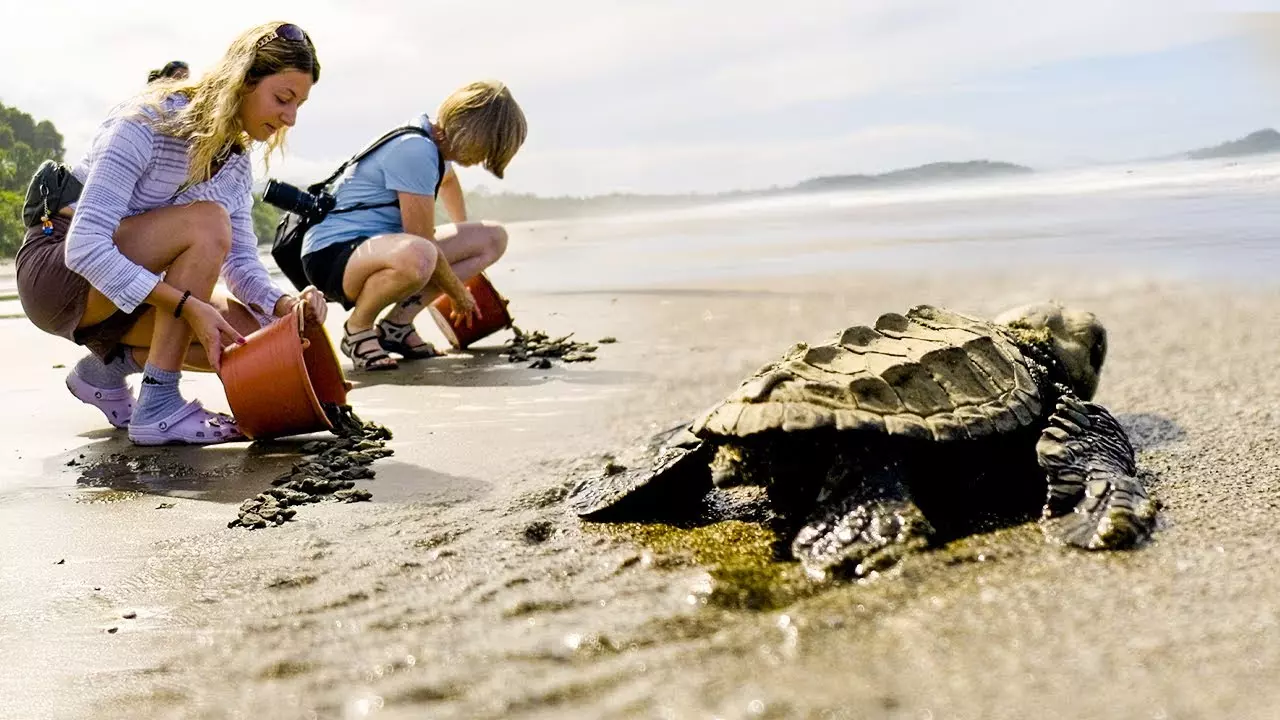
Discover the Costa Rica Turtle Conservation Experience
Find yourself on an adventure at the Costa Rica Turtle Conservation Experience! Get stuck into the world of wildlife conservation, from protecting and releasing baby turtles to exploring vibrant jungles in search of reptiles and monkeys. This is your chance to make a difference.
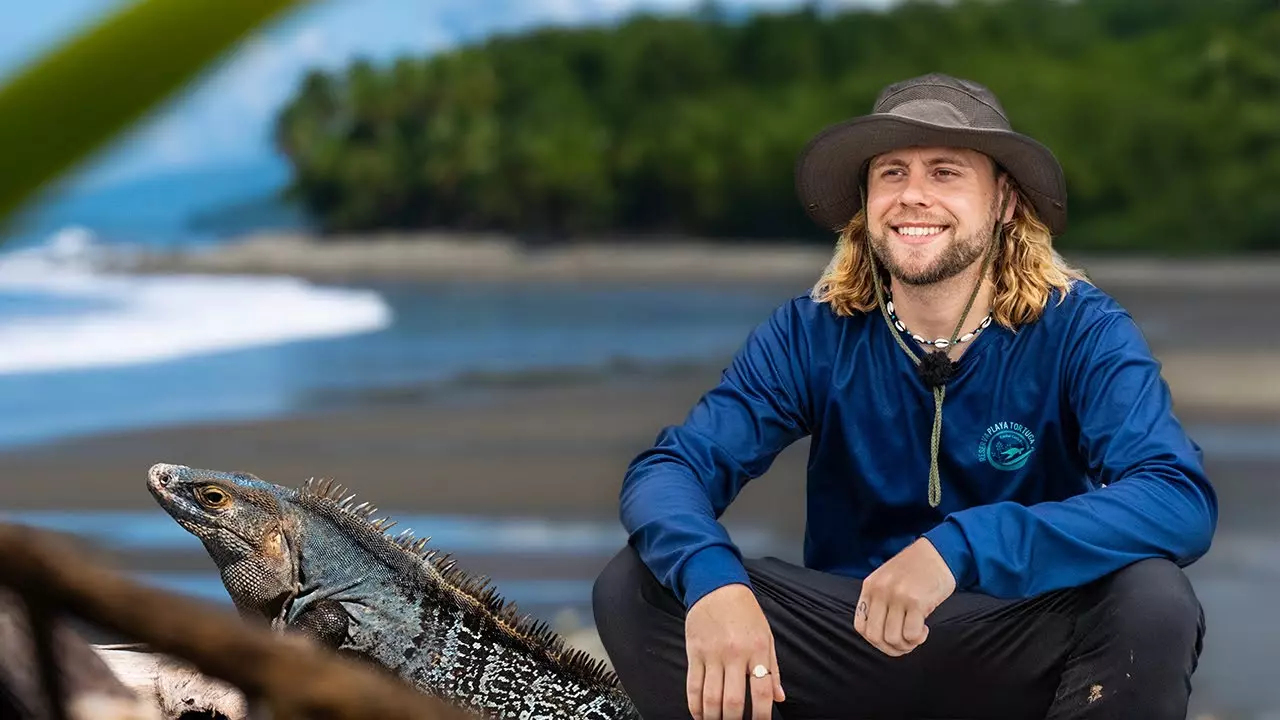
Volunteers Share Their Experiences
Curious about life as a volunteer? Shay, Linda, and Jamie share their incredible experiences to help give you a real feel for the adventure and impact of wildlife conservation!
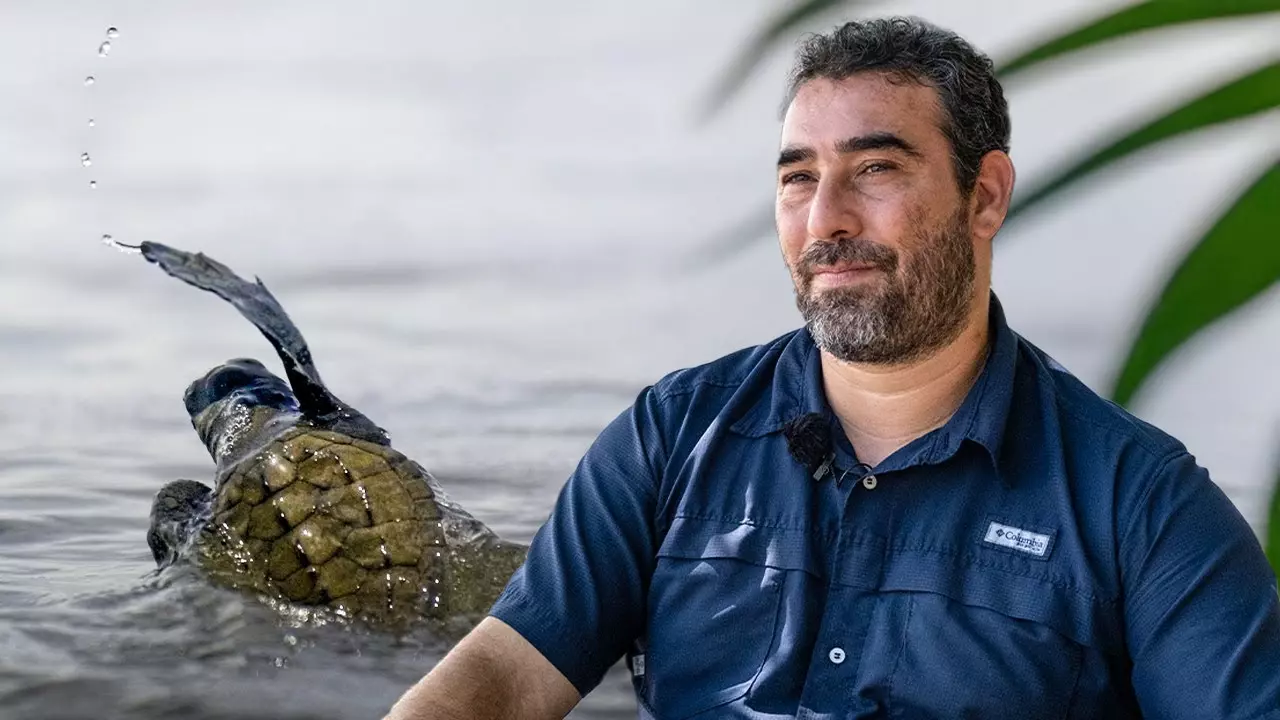
An interview With the Founder
Explore the world of wildlife conservation with Oscar as he highlights the threats to Costa Rica’s turtles and its rainforest species and how volunteers play a vital role in protecting this beautiful ecosystem!
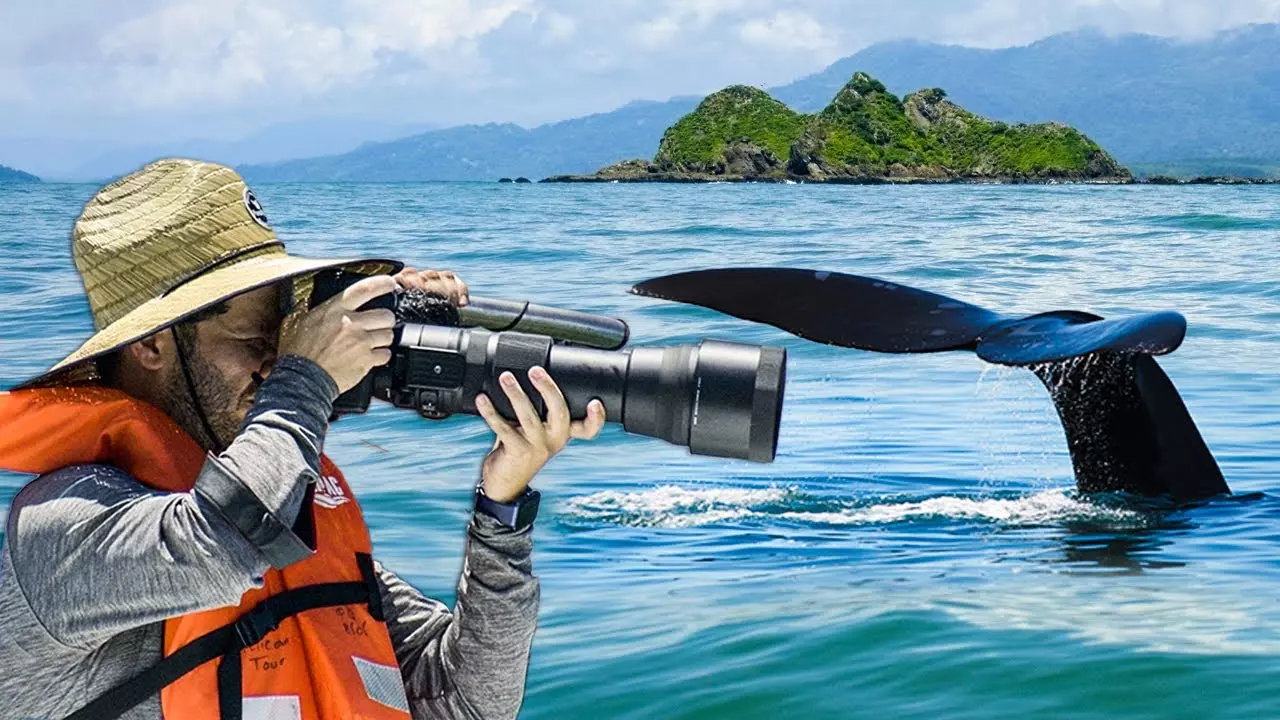
Free Time Adventures
Immerse yourself in one of the most wildlife-rich regions on Earth, where you can fill your free time with adventure or relaxation. Visit the untamed jungles of Corcovado National Park, snorkel off Cano Island, or unwind with a yoga class - there truly is something for everybody.
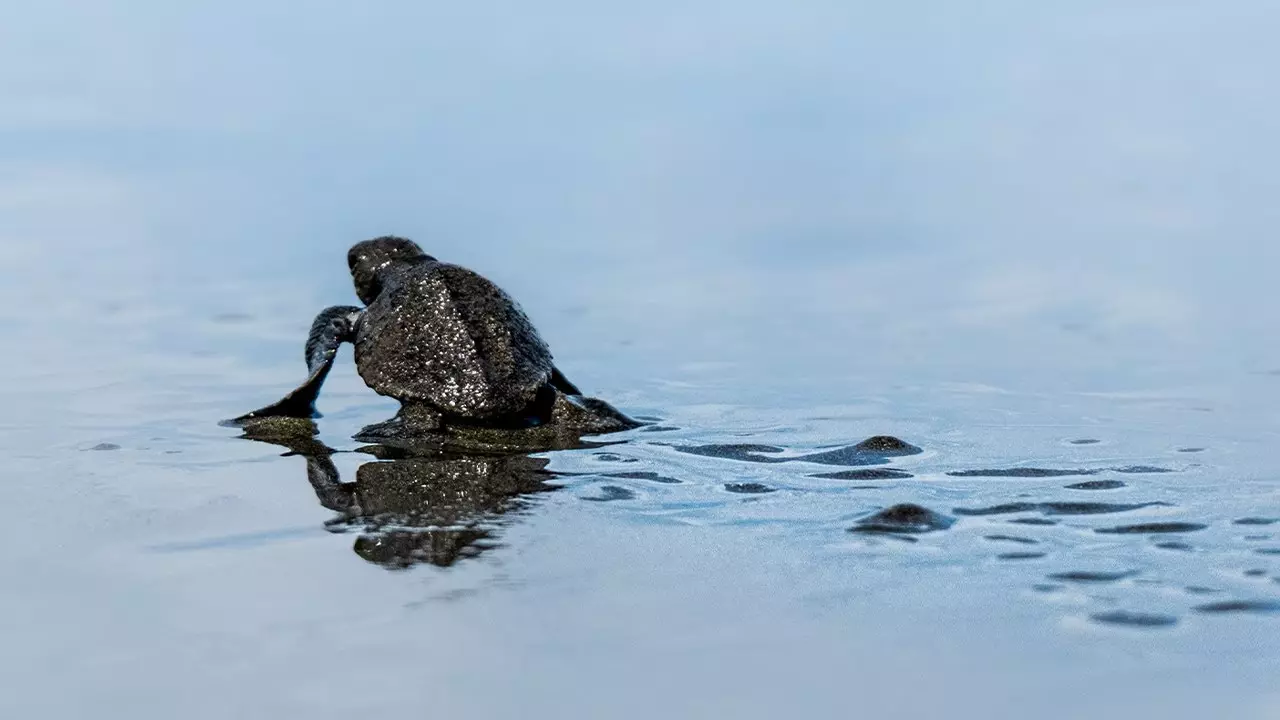
Releasing Baby Turtles
What's it like to guide the next generation of sea turtles into the wild? Discover the journey of turtle hatchlings and see how you play a part in their fight for survival.
Gallery
Reviews
My wife and I just returned from Costa Rica on our fourth trip with The Great Projects. And the Costa Rica Turtles Conservation Experience exceeded our expectations. Working directly with the olive ridley turtles was magical! We continue to travel with The Great Projects because we choose to dedicate some of our free-time to meaningful conservation efforts ... and we believe that The Great Projects has truly identified some worthwhile organizations globally that are doing important work. Thus far, we have traveled to Borneo (orangutans), Uganda (mountain gorillas), India (sloth bears and elephants) and, now, Costa Rica (olive ridley turtles) with The Great Projects. By vetting, facilitating and coordinating the volunteer interactions, The Great Projects has made it easy for us to identify organized conservation initiatives and contribute to ongoing research/conservation. What we enjoyed most about the Costa Rica Turtles Conservation Project was that it was the most hands-on project we have experienced thus far, with respect to interacting directly with the wildlife. Our activities with the turtles ranged from carrying out night patrols with researchers to collect eggs, to monitoring the hatchery, to gathering and weighing/measuring newly hatched turtles, to participating in daily releases. Between working with the turtles,... My wife and I just returned from Costa Rica on our fourth trip with The Great Projects. And the Costa Rica Turtles Conservation Experience exceeded our expectations. Working directly with the olive ridley turtles was magical! We continue to travel with The Great Projects because we choose to dedicate some of our free-time to meaningful conservation efforts ... and we believe that The Great Projects has truly identified some worthwhile organizations globally that are doing important work. Thus far, we have traveled to Borneo (orangutans), Uganda (mountain gorillas), India (sloth bears and elephants) and, now, Costa Rica (olive ridley turtles) with The Great Projects. By vetting, facilitating and coordinating the volunteer interactions, The Great Projects has made it easy for us to identify organized conservation initiatives and contribute to ongoing research/conservation. What we enjoyed most about the Costa Rica Turtles Conservation Project was that it was the most hands-on project we have experienced thus far, with respect to interacting directly with the wildlife. Our activities with the turtles ranged from carrying out night patrols with researchers to collect eggs, to monitoring the hatchery, to gathering and weighing/measuring newly hatched turtles, to participating in daily releases. Between working with the turtles, we participated in both day and night sessions to collect data on various reptile species, monkeys, butterflies and birds in the sanctuary. Also, it was fun to live with other volunteers from various parts of the world and work together to prepare evening meals. The Costa Rica Turtles Conservation Experience is best suited for people who want a truly hands-on, volunteer experience in conservation working with animals. In order to enjoy this project, participants must be be willing to engage in all aspects of the conservation work and work alongside the researchers themselves. The work occurs at any/all time(s) of the day and night to support the important research and conservation efforts. For us, it really did feel like we were able to connect to and participate in the work being done ... not just observe. And for this reason, we would highly recommend this project to other like-minded people. (Show More)
Fantastic experience! I'm really glad I undertook the turtle conservation experience! If you're passionate about sea turtle conservation or fancy a trip to Costa Rica then I would highly recommend this! My main highlights included hatchery duties where I was involved in transferring the baby turtles into buckets to be taken to the release site along the beach, measuring and counting the hatchlings, being involved with releasing the baby turtles into the Pacific ocean, and going on night patrols along the coast looking for female turtles and their nests in order to rescue their eggs before local poachers could find them! Night patrols through the jungle were also a thrilling experience and gave me the chance to spot native wildlife at night time, including possums, snakes, and crocodiles! Other duties included tending to the butterfly garden and day patrols through the rainforest looking for monkeys and macaws! Be sure to bring your binoculars and a Costa Rican bird book! Even with the heat, humidity, and swarms of mosquitoes, I would do this all over again in a heartbeat!
I have spent a bit more than a week at the program, which felt too short. The team running this initiative, experience of helping the turtle to lay eggs at night, safely moving those eggs to the hatchery and seeing how small turtles are born and actively push to get to the ocean - all of this memories will last for a lifetime! The feeling when you hold the small turtle in your hand (with protectice gloves, of course, to not damage it: -) ), just born out of the egg - this is simply invaluable. Additionally to turtle conservation related activities, we explored jungle to take data about the bats, collected and sorted the butterfly eggs in the butterfly garden, had a walk over the wild beach to account for the local birds, saw several monkeys during the day time, had iguana observe us from the top of the tree - the days were very packed with activities. Of course, I cannot forget the night beach patrols - while tiring, these are very important to prevent poachers getting to the turtle eggs. In the free time I had an opporunioty to visit Ochochal fall in local area, which is... I have spent a bit more than a week at the program, which felt too short. The team running this initiative, experience of helping the turtle to lay eggs at night, safely moving those eggs to the hatchery and seeing how small turtles are born and actively push to get to the ocean - all of this memories will last for a lifetime! The feeling when you hold the small turtle in your hand (with protectice gloves, of course, to not damage it: -) ), just born out of the egg - this is simply invaluable. Additionally to turtle conservation related activities, we explored jungle to take data about the bats, collected and sorted the butterfly eggs in the butterfly garden, had a walk over the wild beach to account for the local birds, saw several monkeys during the day time, had iguana observe us from the top of the tree - the days were very packed with activities. Of course, I cannot forget the night beach patrols - while tiring, these are very important to prevent poachers getting to the turtle eggs. In the free time I had an opporunioty to visit Ochochal fall in local area, which is great to relax in a cool water during a hot day. A bit further away is a Whale tale beach, which is great for nice pictures, for learning surfing and just for relaxing on a nice sand. I very recommend this program, it was very enjoyable both from experience, from being that close to nature and from the support and the welcome spirit from the team handling this turtle conservation site. (Show More)
What's Included
- Accommodation
- Meals
- Transfers to and from San José Airport or a hotel nearby (transfers from elsewhere in the city will be subject to an additional charge)
- English-speaking project coordinator
- Wi-Fi
- Use of the on-site laundry facilities
What's Not Included
- Flights
- Visas
- Travel Insurance























